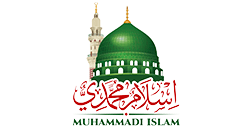If we look back on history, we see that all the prophets and messengers made some reforms to eradicate the existing prejudices in society and updated the religion of Islam for humanitarian purposes. The greatest Prophet and Messenger of Allah, Hazrat Muhammad (PBUH), also made some religious reforms in his lifetime for the welfare of mankind which were very fruitful. The Prophet Muhammad (PBUH) established an ideal social, religious, and governance system based on justice and equality in Arabia, immersed in injustices by making various reforms in his 23 years of prophetic life. He established monotheistic Islam in polytheistic Arabia. The reforms made by the Prophet (PBUH) can be divided into some categories. They are-
- Social Reforms
- Cultural Reforms
- Political Reforms
- Economic Reforms
- Administrative Reforms
An account of different reforms of the Prophet (PBUH):
Social Reforms
Building a Humanitarian Society:
The Prophet Muhammad (PBUH) placed humanity above all casts, creeds, and colour in his ideology. He declared- all men are equal; Only he is greater in humanity who has Takwa (fear of Allah). He abandoned the policy- ‘Might is right’ and as a result of it killing and bloodshed stopped. He built a society completely based on humanity.
Establishing females’ rights and dignity:
When the Prophet Muhammad (PBUH) was born, Arab women didn’t have minimum rights and dignity in society. They were traded as goods and severely abused. Then the Prophet (PBUH) taught his followers to behave well with women. He taught them to be tolerant and human towards women.
To stop the killing of female children:
The Arab people used to bury their female children alive for poverty and the fear of social humiliation. The Prophet Muhammad (PBUH) played a great role in stopping this evil custom in Arab society. The Prophet (PBUH) said in regard to this, “If a female child is born to a family, but the parent didn’t cause suffering to her or become displeased at her birth and didn’t prioritize a male child over her, then Allah will give him access to heaven.” [Musnade Ahmad, 1:123]
To arrange education for the Muslims in Mecca:
Before the birth of the Prophet (PBUH), most of the Arabs were uneducated and illiterate. As a result, they used to be exploited by the few educated men in society. After the conquest of Mecca, the Prophet Muhammad (PBUH) arranged to receive education for all Muslims.
Recognition of the slaves’ rights:
Slavery was very common in Arab society before the birth of the Prophet Muhammad (PBUH). They weren’t treated as humans and were extremely abused. Their life, death, marriage, and everything was dependent on the whims of their owner. The Prophet Muhammad (PBUH) abandoned all sorts of slavery and asked everybody to behave humanly with them. The Prophet (PBUH) said in regard to this, “They’re your brothers. Allah subjected them to you. Give them those to eat what you eat and let them wear what you wear. You must not impose any work on them that they’re unable to do. If you impose any work of such kind on them, then you must help them to do it.” [Sahi Muslim:4167]
Women’s right to property:
In the pre-Islamic age, Arab women were deprived of their property rights. The Prophet Muhammad (PBUH) is the first man in the history of Arab who recognized women’s right to their inheritance.
Religious Reforms
Monotheism:
The Prophet Muhammad (PBUH) abandoned the concept of polytheism existing in Arab society for quite a long time and preached the messages of monotheism (oneness of Allah). Allah states in the holy Quran, “He, Allah, is one., Allah, the eternal. He begets not, nor is He begotten. And there is none like unto Him”. [Sura:Ikhlas,verse:1-4].
Founding Masjid E Nabawi:
The first mosque in the history of Islam founded by the Prophet (PBUH), which still exists in Medina with the holy Shrine of the Prophet Muhammad (PBUH). After founding this mosque, the Prophet (PBUH) openly arranged Adhan (call for prayer) and prayer for the Muslims.
Renovation of the House of Kaaba:
One of the pilgrimage sites of the Muslims, the House of Kaaba was in a decrepit condition for a long time. The Prophet (PBUH) renovated it again with a strong structure and reset Hajre Aswad (black stone).
Cultural Reforms
Abandoning all perverted tastes:
After the emergence of Islam in Arabia, the Prophet Muhammad (PBUH) declared the prohibition of all sorts of perverted tastes, including drinking alcohol and gambling. Allah states in the holy Quran, “Believers! Intoxicants, games of chance, idolatrous sacrifices at altars, and divining arrows are all abominations, the handiwork of Satan. So turn wholly away from it that you may attain true success.” [Sura:Al Maidah, verse:90].”
Forming a nation based on communal harmony:
The Prophet (PBUH) brought all the people of Arab under the shed of communal harmony to form a truly peaceful nation.
Political Reforms
- The Constitution of Medina: The first written constitution in the world was the charter of Medina which was introduced by the Prophet Muhammad (PBUH).
- Forming a multi-religious state based on the laws of Allah.
- Establishing the sovereignty of Allah.
- Forming a society based on justice and equality.
Economic Reforms
- Introducing an exploitation-free economic system: Prohibition of usury.
- Emphasizes Zakat (almsgiving).
- Jizya and Kharaz: Introducing Islamic laws of land and protection taxes.
- Equal distribution of the spoils of war: Distributing one-fifth of the spoils of war among the warriors.
Reforming Judiciary System
- Introducing a judiciary system based on equality and justice.
In the end, the reforms the Prophet Muhammad (PBUH) made played a groundbreaking role in reestablishing peace, order, and harmony in the chaotic Arab nation. Historian Gibn termed these reforms as ‘a great memorable revolution’.

